Table of Contents
Did you ride your car only to find out that it is overheating but then it cools down? You are not alone. This is a common incident, especially with old vehicles.
But what causes this car intermittently overheating and cooling? And most importantly, how can I stop it?
In this article, we will discuss a common issue “Car overheating then going back to normal” as well as some tips on how to fix the issue. Keep reading!

So Why Does My Car Overheat Then Cools Down (Main Causes):
The engine could get hot and then cool off again for eight different reasons. This can be dangerous because the driver may not know that their vehicle is overheating.
It can cause the gauge to rise and lead to expensive repairs. An engine that has been intermittent overheating too much might catch on fire if it gets really bad.
So if your temperature gauge goes up unexpectedly, take action!
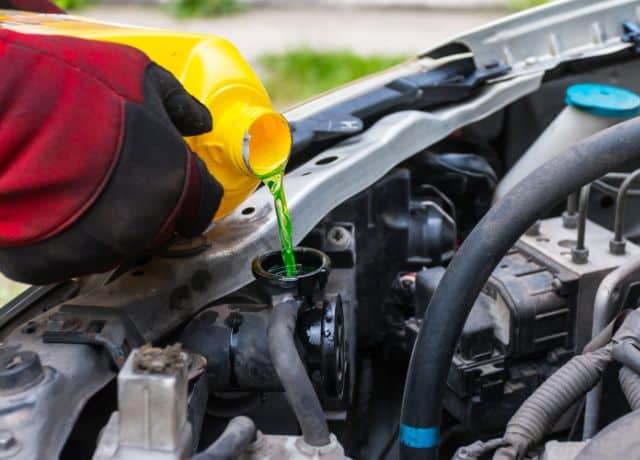
Low Coolant Level:
Lack of coolant due to leaks or blockages from rust is the main reason behind cars overheating. Incorrect coolant usage can worsen things while high temperatures prevent heat dissipation through radiation or convection processes whichever they come across first.
To avoid problems ask a professional about the right type of coolants or check the manual book guide for more information about the correct types of coolants that should be used in different weather conditions.
Also checking temperature gauges regularly combined with coolant sensor monitoring should save one from serious damage caused by engines.
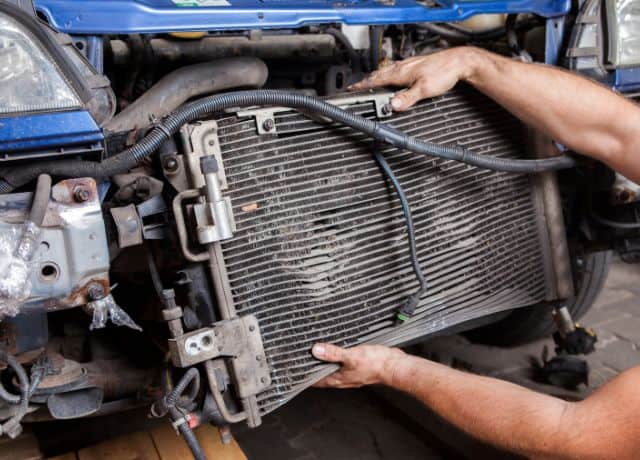
Bad Radiator:
The tubes and fins are used to circulate coolant around the engine for cooling.
To cost-effectively repair a radiator that is not working properly, it will need to be replaced as soon as possible.
If the fans stop functioning, there may be leaks or clogs reducing airflow in the radiator’s tubes and fins as a heat exchanger.
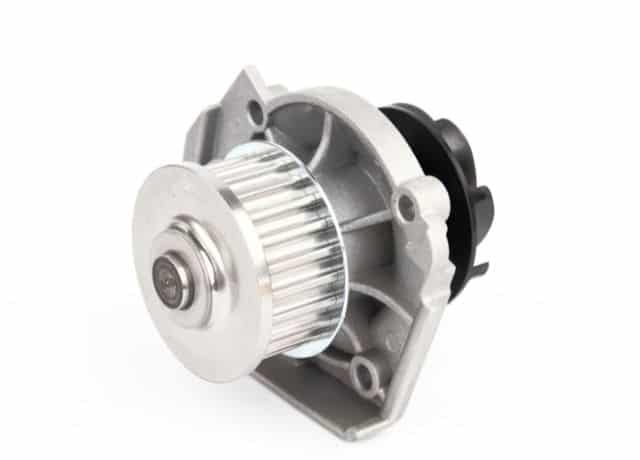
Water Pump Problems:
One of the most common causes for sudden spikes in engine temperature is failure to circulate coolant due to problems with water pumps.
This happens when a pump stops working therefore disrupting the flow of coolants and leading to the possibility of car temp going up and down.
When this occurs immediate attention should be paid because continued running under such conditions may cause severe damage to engines eventually requiring costly repairs or even replacement altogether.
Malfunctioning Thermostat:
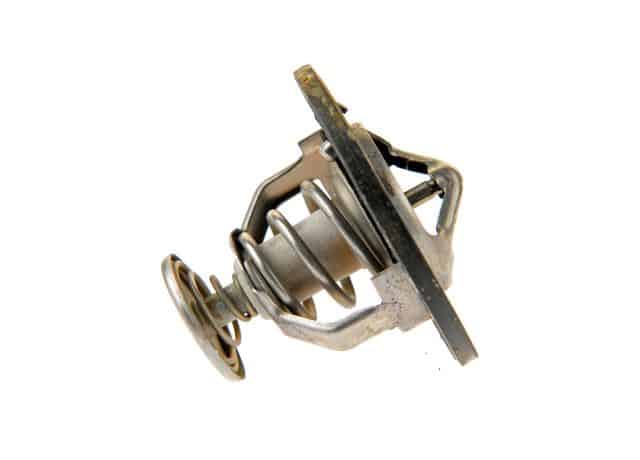
A car thermostat regulates coolant flow through an engine block.
It does so by opening and closing valves according to computer commands received from sensors monitoring temperatures at various points within a cooling system.
If faulty, these devices can cause engine temp spikes then returns normal during winter months especially if they stick partially closed position where less amount fluid flows past them hence reducing dissipation rates.
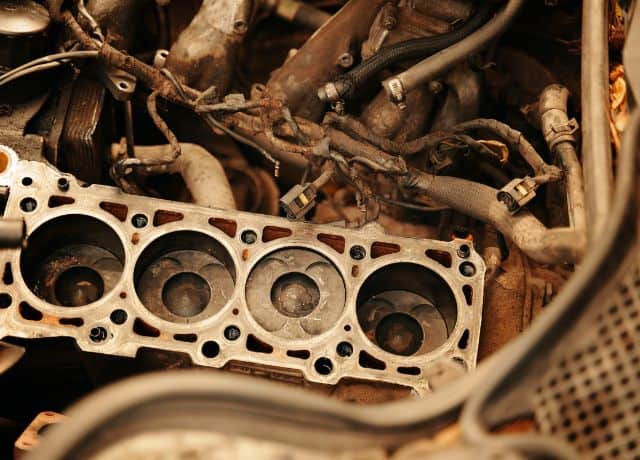
Head Gasket Failure:
The head gasket acts as a seal between the cylinder head top parts preventing leaks while maintaining efficiency.
When it fails oil mixes up together with antifreeze resulting in the:
- Decreased gas mileage
- Burning smell
- Engine damage
- Overheating
Therefore early detection plays a key role in avoiding expensive fixes down the line.
Belt Bummer:
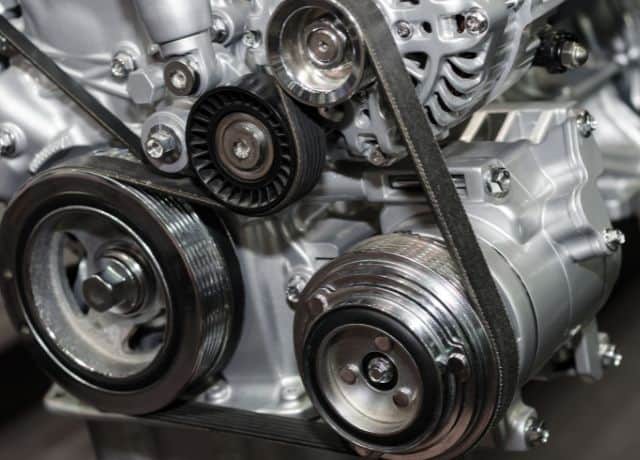
Sometimes cars overheat because their belts do not work properly. This is known as Belt Bummer, and it lowers the levels of coolant in your car’s engine causing erratic temperature readings.
Though not very serious but can be quite annoying especially if happens frequently hence recommended that you replace the tensioner while checking the belt for wear signs will fix everything back into place again where it belongs.
Always make sure you maintain proper care and service intervals that will keep your vehicle operating at its optimum level at all times.
Sensors Failure:
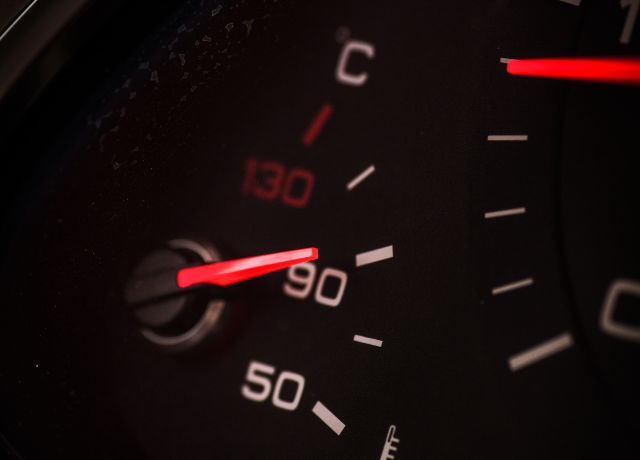
There are cases where the engine runs fine but still shows hot on the temperature gauge due to a faulty sensor giving false readings.
Even though this may not pose much danger in some instances it could lead to major problems with the engine.
If one suspects that their car’s sensor has failed they should have it checked and repaired as soon as possible this will prevent further damage being caused to other parts of the motor over long periods.
Blocked Heater Core:
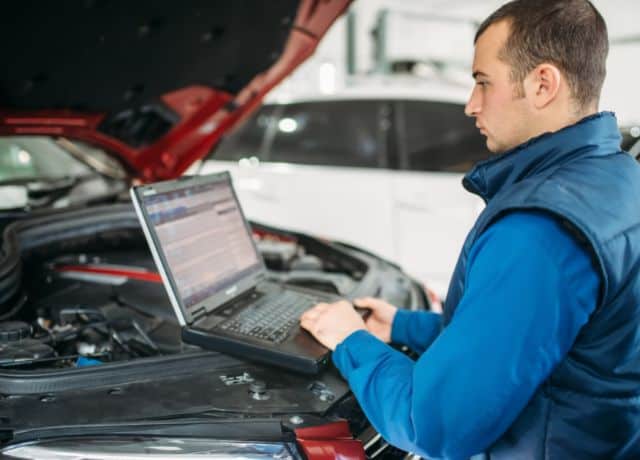
If the heating system is blocked, it may cause variations in the temperature gauge reading in a car.
The radiator, fan, water pump, hoses, and thermostat are parts of the cooling system that should work well to prevent car intermittently overheating.
In case there is blockage within heater cores which limits coolant flow thus making thermostats open hence fluctuations on gauges; frequent changes on meters can be an indication of something wrong so drivers need not wait until their motors get spoilt before visiting a garage for repairs.
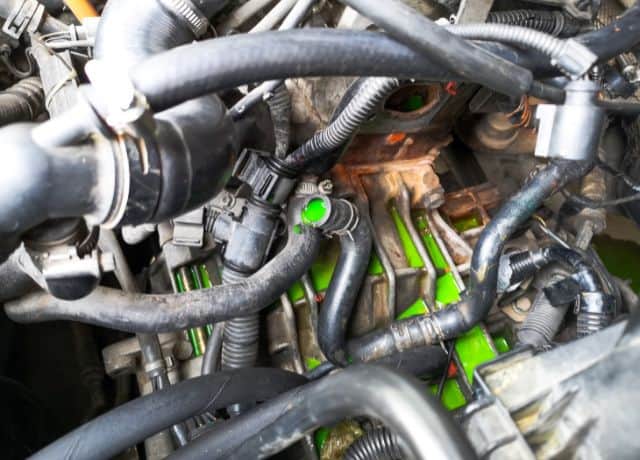
What To Do If Your Car Overheating Then Going Back To Normal?
If the temperature of your car fluctuates, you should take immediate action to avoid damaging the engine. Once you have found and fixed the cause of the car temperature gauge hot then normal, check the temperature gauge regularly. If it starts rising again, act fast.
Here are 5 quick things to do if your car cools off but overheats:
Diagnose The Vehicle:
Indicating an issue that needs expert assessment, a fluctuating temperature gauge in your vehicle is not an emergency.
However, a diagnostic checkup can help identify causes for intermittent overheating. Treating the problem is like finding out about hidden ailments during a health examination.
Change Bad Radiator:
When a vehicle overheats then cools replace its radiator instantly since this part circulates coolant through keeping engines cool.
Thus when damaged fails to work correctly leading into excess heating instead of doing some repair works on them.
Check For Coolant Leaks:
A car with unstable temperatures often has problems with its cooling system hence you need to inspect whether there are any leaks by looking around these areas such as water pumps and hose connections which may be loose or worn out causing leakage.
But if none is found then check level because low levels could cause overheating and also examine whether there are deposits in radiators which might obstruct flow so flush them out before refilling with new coolants if necessary otherwise investigate other possibilities whenever too much heat is still being generated.
Replace Defective Thermostat:
A faulty thermostat could be another reason why car overheats then cools down therefore when this happens one should consider changing it since they control flow rate of fluids.
Thus opening completely would prevent coolant from cooling down an engine thereby leading to excessive temperatures plus creation of white smoke.
This cheap fix can save lots later on in more severe damages caused by overworking other parts due high temps recorded always.
Switch On The Heater:
To prolong operation time turn on heater temporarily while driving so as dissipate extra heat produced by an engine.
Though keep in mind that it only acts as a temporary measure and should not be relied upon for too long since failure could jeopardize safety of occupants or even lead to more serious complications with motors.
FAQ:
Why Does My Car Overheat then Go Back to Normal?
A busted thermostat can cause car overheat as well as a broken fan belt or water pump.
Moreover, heat may not get out due to blockage within the radiator or cooling system. In any case, one should take it to be checked and fixed by a mechanic.
What Are The Main Causes Of a Car Overheating?
Car overheating then going back to normal happens because of various reasons like blocked heater core, faulty sensors and low coolant levels among others.
Each problem has its own solution so it is important that we identify what caused the problem in our cars before fixing them ourselves.
If you are not sure about how diagnose this or repair it then consult someone who does know such as an automotive professional technician (mechanic).
Another possible cause could be also given that there might have been no service done on some parts recently which failed unnoticed, besides clogs from debris or corrosion within the cooling system still remains another possible cause for overheating too.
Additionally either the fan belt might be defective or even the valve closed.
Can I Drive My Car If It’s Overheating?
If it so happens that your car is overheating, do not drive it in that condition; instead, pull off the road and wait for its engine to cool down.
Check the antifreeze levels and if it gets heated up again have someone tow you to a garage.
Mechanics are available throughout the year regardless of the weather conditions and will diagnose and fix any glitches to prevent future over-heating.
What Are The Symptoms Of a Bad Thermostat?
Various warning signs indicate that there may be something wrong with your thermostat:
An abnormally high or low temperature
Broken heaters
Coolant leaks
Strange noises coming from the unit.
These are all possible signs which should not be ignored and thus require immediate attention by a qualified technician who will determine if replacement is necessary or not after examining them thoroughly.
How Far Can You Drive An Overheated Car?
If your car overheats, stop driving immediately. You should never drive an overheating car as this can cause further damage to the engine.
If it has only just started to get hot then you may be able to drive a short distance before stopping to allow for cooling down.
However ignoring such warning signs often leads into major problems with one’s vehicle.
Why Is My Car Overheating With No Leaks?
Cars can overheat without leaks due to water pump failure, thermostat issues, or radiator blockages.
Recently serviced vehicles may have uninspected parts that fail unexpectedly. Debris or corrosion can clog the cooling system, retaining heat instead of dissipating it.
Additionally, a faulty fan belt or dysfunctional fan clutch may contribute to overheating. If unsure, consult a mechanic for assistance.
Can Low Oil Lead To Overheating?
Yes, low oil levels can cause an engine to overheat because lubricates its parts thereby absorbing heat from them too.
Once oil level drops below certain point it ceases doing this work effectively hence leading into excessive heating up of the motor.
Can Too Much Coolant Lead To Overheating?
Car engines can overheat when excess coolant accumulates in their cooling systems.
Abnormalities must be fixed immediately to prevent future problems that may necessitate more repairs in other motor vehicle parts including electric cables.
Why Is My Car Blowing Cold Air Although The Engine Is Overheated?
It is possible to experience blockage of the heater core due to damaged hoses or clogged radiators thereby leading to coolant flow problems.
These impediments interfere with the process of heat exchange, which makes it impossible for hot air to circulate through the car compartment necessary for keeping up comfortable temperatures in there.
Conclusion:
In conclusion, there are 8 reasons behind your car’s engine that could overheat occasionally. If the temperature of the engine in your car goes up and down again, there are simple things which can be done to fix it before it leads to expensive repairs.
Keep monitoring the temperature of your car and look at coolant levels for future problems prevention. Once you hear weird sounds or notice any leaks, take your vehicle for immediate checking.
Regular servicing keeps your car running smoothly over an extended period. When unsure, better consult a professional; it’s better safe than sorry!

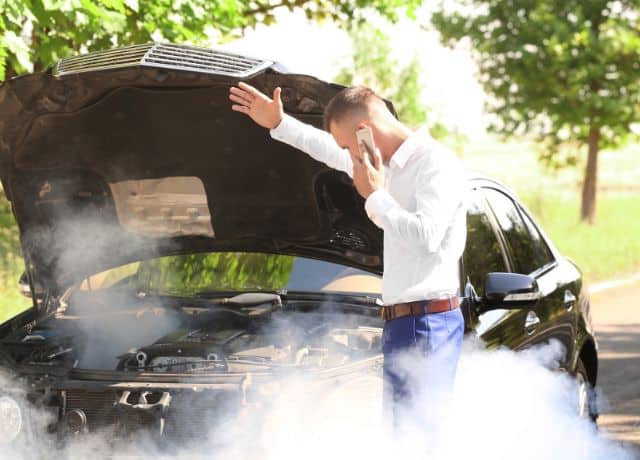




























































3 thoughts on “Car Overheating Then Going Back To Normal (2024) – Flawless Car Guide”